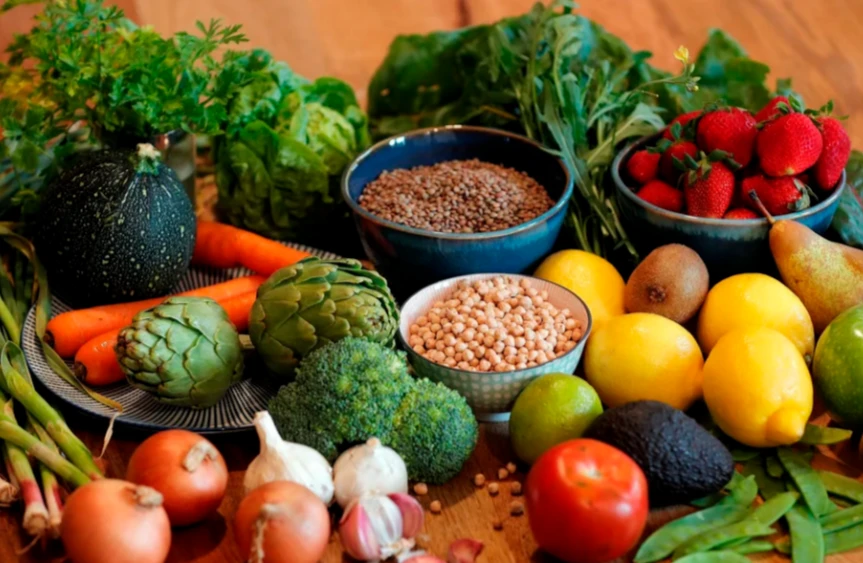Can a Proper Diet Help Alleviate the Symptoms of Long-Term COVID-19? Experts from Nottingham Trent University Analyze the Evidence
The SARS-CoV-2 coronavirus and the COVID-19 disease it causes continue to be a topic of much research, three years after its emergence. With over 200 symptoms affecting multiple organ systems and an estimated 65 million people worldwide suffering from long-term COVID-19, finding ways to manage this debilitating illness is crucial.
At least 10% of people who contract the virus will experience symptoms such as fatigue, shortness of breath, and brain fog. The biomedical community has made progress in identifying the pathophysiological changes and risk factors of the disease, but a recent study published in the NIH focuses on how diet can help alleviate these symptoms and aid in recovery.
Nottingham Trent University experts analyzed the available evidence to provide answers on the potential benefits of a proper diet in managing long-term COVID-19 and avoiding inflammation.
The process by which the immune system protects us from harmful pathogens is called inflammation. But too much inflammation can be a bad thing, which is why scientists believe many of the symptoms associated with long-lasting COVID arise from chronic inflammation. And medicine now knows that some foods can promote inflammation, while studies have shown that components of certain foods can have anti-inflammatory effects.
Thus, the medical community maintains that an anti-inflammatory diet involves avoiding foods that cause inflammation, such as fried foods, refined carbohydrates, sugar, red and processed meats, and lard. And they highlight foods that reduce inflammation, such as tomatoes, olive oil, green leafy vegetables, nuts, fatty fish, and fruits such as strawberries and blueberries. These foods are rich in antioxidants and compounds that help protect against inflammation.
This resembles the Mediterranean diet. Following it means eating lots of fruit, vegetables, nuts, whole grains, fish and healthy oils. This diet is rich in vitamins, minerals and dietary fiber, and has an anti-inflammatory effect on the intestine. Researchers have suggested in previous studies that the Mediterranean diet may have benefits in reducing the severity of a COVID infection in the short term, as well as addressing symptoms in the long term.
Common symptoms of long-term COVID include fatigue, shortness of breath, and difficulties with memory and concentration (“brain fog”). Symptoms may worsen with physical or mental exertion. We are still learning about long-term COVID, and treatment options are very limited.
“Current evidence and expert opinion encourage the consumption of fresh, unprocessed plant foods, such as vegetables, fruits, and whole grains. In addition, they highlight the importance of vitamins and minerals such as zinc, vitamin C, D, A and the maintenance of adequate hydration, while suggesting a moderate consumption of fats, preferring unsaturated fats and avoiding the consumption of sugar and salt”, stands out in the investigation.
And he adds: “The Mediterranean diet, one of the healthiest dietary patterns worldwide, reputed for its proven preventive effect of cardiovascular disease and type 2 diabetes in several trials, is characterized by the inclusion of mainly plant-derived nutritional components, a namely, fruits, vegetables, legumes, nuts and olive oil, all of which are important sources of bioactive polyphenols.
A low histamine diet
Histamine is a compound released by cells, often in response to injury or an allergic reaction. But histamine can cause inflammation and can be a problem when we can’t break it down properly and the levels are too high. Symptoms when this happens can include headaches, diarrhea, wheezing, and fatigue.
Many of these symptoms are similar to those reported with prolonged COVID. Some scientists have proposed that the increased inflammatory responses seen with prolonged COVID might be due to increased histamine release by dysfunctional immune cells, seen in other conditions.
A low histamine diet involves restricting the intake of foods and beverages considered high in histamine for several weeks, before gradually reintroducing them to test tolerance. These include alcohol, fermented foods, dairy products, shellfish, processed meats, and aged cheese, as well as wheat germ and a variety of fruits and vegetables.
However, there seems to be a lack of consensus on which foods are actually high in histamine. And because the foods are varied, this can be a difficult diet to implement without potentially causing nutritional deficiencies. Although some people have reported improvement in their symptoms when following a low-histamine diet, no studies have been published in this area. Given the lack of evidence and associated challenges, dietary histamine removal is not currently recommended for prolonged COVID.
Finally, there is the plant-based diet, which refers to diets in which most of the energy is derived from plant foods, such as vegan and vegetarian diets. Plant-based diets are beneficial for markers of inflammation and may favorably alter immune function.
More specifically, a well-balanced plant-based diet is high in fiber, antioxidants, good fatty acids, and a variety of vitamins and minerals, which positively affect various cell types involved in immune function and may exhibit direct antiviral properties. For example, compounds called polyphenols found in fruits and vegetables can enhance the functionality and activity of natural killer cells, an immune cell that patrols the body and recognizes abnormal cells.
Although some long-term COVID sufferers have touted the benefits of a plant-based diet, its usefulness in alleviating long-term COVID symptoms has yet to be examined in clinical trials.

